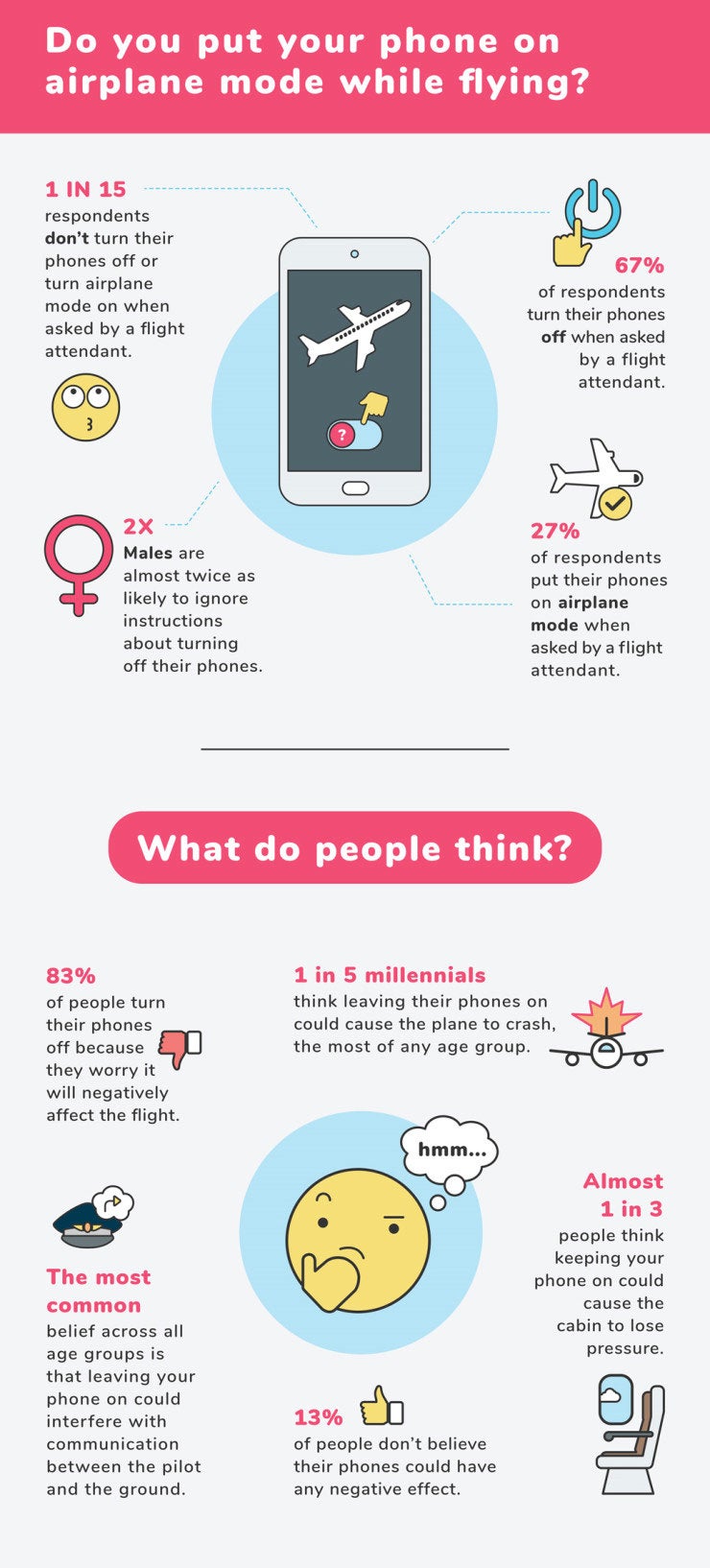Phone Safety on Planes? Passengers Don’t Care.
A new survey shows exactly what passengers think of cell phone rules set by the FCC and enforced by flight attendants.

This story originally appeared on PCMag
Ever been on a plane as it’s about to take off, with your phone in airplane mode or even turned off, then looked over to see someone FaceTiming at full volume? It happens plenty, despite requests from flight attendants who ask you to turn off connectivity on your phone for your safety (and because the Federal Aviation Administration makes them).

A new survey by AT&T reseller All Home Connections put 1,000 travelers to the test, asking them point-blank what they do with their phones on a plane. The answers might be startling to anyone with aviophobia. They might also seem worth a big ol’ shrug to weary travelers who’ve seen it all and believe the rules are arbitrary, capricious, and a trifle unfair, especially because air travel has become such a chore, with all the pleasure of taking a covered wagon across the prairie in the 1800s.
What it boils down to is this: One in 15 people surveyed never even bother to put their smartphones in airplane mode when a flight attendant asks. Only 67 percent turn off their phones. And men are twice as likely to flaunt instructions from the crew. You can see all the details in this infographic.
All Home Connections went the extra mile and talked to a pilot and author who said pretty clearly that phones “can and do interfere with radio transmissions,” and the only thing saving the plane’s communications with the tower is that the majority of passengers do use airplane mode when requested. It turns out that at least 61.4 percent of respondents believe that to be true. (14.5 percent believe using a phone will outright cause a plan to crash. But considering how many people apparently don’t turn off their phones, the ground would be littered with fuselages and wings if that were the case.)
The survey also covered the worst habits of people on planes. Playing audio without headphones topped the list of things respondents hate, with 83 percent of people annoyed (at best). Fewer people (63 percent) dislike when passengers talk on the phone when the plane is still on the ground. And a lot of people hate when you use a bright screen (whether on a phone or tablet or laptop) when the lights are out for a night flight. Plenty of people would like to see transgressors’ devices confiscated or see them get fined for their hubris. One to 2 percent would like to see them banned, depending on the etiquette “infraction.”
For more, read the full report. Think about it next time you’re flying the not-so-friendly skies.
Ever been on a plane as it’s about to take off, with your phone in airplane mode or even turned off, then looked over to see someone FaceTiming at full volume? It happens plenty, despite requests from flight attendants who ask you to turn off connectivity on your phone for your safety (and because the Federal Aviation Administration makes them).

A new survey by AT&T reseller All Home Connections put 1,000 travelers to the test, asking them point-blank what they do with their phones on a plane. The answers might be startling to anyone with aviophobia. They might also seem worth a big ol’ shrug to weary travelers who’ve seen it all and believe the rules are arbitrary, capricious, and a trifle unfair, especially because air travel has become such a chore, with all the pleasure of taking a covered wagon across the prairie in the 1800s.







